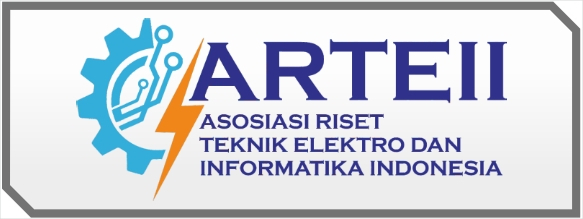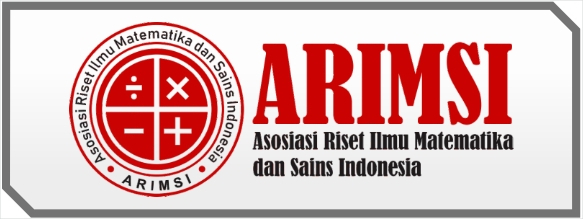Ibadah Puasa Ramadhan dalam Perspektif Islam dan Kesehatan
DOI:
https://doi.org/10.55606/sscj-amik.v3i1.4610Keywords:
Islam, Fasting, Health, BodyAbstract
Islam considers that health is part of Allah's greatest favor. Medically, fasting can cleanse toxins and substances that accumulate in the digestive tract, kidneys, and other organs of the body due to preservatives, dyes, artificial sweeteners, cancer-causing carcinogenic substances, cigarette smoke and others that accumulate over the years. Although our body's mechanisms have the ability to treat themselves, the body's capacity also has its limits. By fasting, the protection of the body's organs can be perfect. The purpose of this research is to inform Muslims that fasting is mandatory for us to carry it out. In the Qur'an, surah al-Baqarah 2:183. Allah SWT said, "O you who believe, it is obligatory to fast on you, it is obligatory to those before you, so that you may fear Allah". Fasting is one of the pillars of Islam that must be done by every Muslim who is mukalaf (who has reached puberty and has intellect) and who is not in hindrance (uzur). The type of research used is from various literature and the development of various references. The method used is analysis. The data of this study was obtained by collecting data related to the journal theme, then grouping, sorting, and deleting unnecessary data. Next is to present and conclude from various data collections. The results of this study are described systematically and concretely according to the order of focus that has been previously explained. The first step is to explain what fasting is. The second step is to quote all the sentences that describe the relationship between fasting and health according to leading experts
References
Ali, A., Eq, N. A., Suhartini, A., Ummul, I., & Bogor, Q. A. (2022). Kecerdasan spiritual santri melalui puasa: Studi kasus pada santri Pondok Pesantren Ummul Quro Al-Islami Leuwiliang Bogor. Reslaj: Religion Education Social Laa Roiba Journal, 4, 1–10. https://doi.org/10.47476/reslaj.v4i1.444
Angel, A., Mutiara, A., Arya, A., Polem, A., & Nugraha, B. S. W. (2024). Nilai-nilai puasa dan implikasinya terhadap pendidikan karakter.
Asshiddiqei, M. R., Hukmi, P. K., & Aziz, F. A. W. (2024). Analisis tentang konteks ibadah menurut Al-Qur'an.
Kusuma, A. D., Azzara, E. S., Khotrun Nada, S. B., & Kartika, W. Y. (2023). Tradisi puasa Asyura di Pondok Pesantren KH Ahmad Dahlan.
Azzahra, S., Wardhani, T. T., Azmi, N., Mulyani, S., & Wismanto. (2024). Korelasi intensitas puasa Senin Kamis dan kecerdasan emosional. Journal of Islamic Education, 2(1).
Halimah, S. (2020). Nilai-nilai ibadah puasa yang terkandung dalam kitab Al-Fiqh Al-Islami Wa Adillatuhu karya Wahbah Az-Zuhaili dan implikasinya terhadap pendidikan karakter. JIE (Journal of Islamic Education), 5(2), 100–117.
Rihan, H. G., Cahyati, P., Anggelia, J., & Efendi, S. N. (2024). Nilai-nilai pendidikan Islam yang terkandung pada pelaksanaan praktek puasa Ramadhan.
Komariah, & Rahayu, S. (2020). Hubungan kadar gula darah puasa pada pasien diabetes melitus tipe 2 di Klinik Pratama Rawat Jalan. Jurnal Kesehatan Kusuma Husada, 11(1), 41–50.
Melani, S., & Ali, M. (2023). Hakikat dan tujuan puasa dalam perspektif tafsir sufi: Analisis tafsir surah Al-Baqarah ayat 183-187.
Ningsih, D. D. R. (2022). Nilai-nilai ibadah puasa dalam kitab Minhajul Muslim karya Syaikh Abu Bakar Jabir Al-Jaza'iri.
Asshiddiqei, M. R., Hukmi, P. K., Aziz, F. A., Febriyani, F., & Wismanto. (2024). Analisis tentang konteks ibadah menurut Al-Qur’an. MARAS: Jurnal Penelitian Multidisiplin, 2(2), 767–774. https://ejournal.lumbungpare.org/index.php/maras
Aryanto, S. (2022). Nilai-nilai pendidikan Islam dalam ibadah puasa serta implikasinya terhadap pembentukan karakter. EDUGAMA: Jurnal Kependidikan Dan Sosial Keagamaan, 8(2), 310–319. https://doi.org/10.32923/edugama.v8i2.2661
Septiani, C., Binti, F. A., Amri, I., & Saidah, S. W. (2024). Pengembangan kecerdasan spiritual anak melalui amalan ibadah puasa Ramadhan sejak masa dini.
Syaifi, M. (2019). Nilai-nilai pendidikan Islam dalam ibadah puasa Ramadhan. Jurnal Tarbawi, 7(2), 1–29.
Hasan, W. A. (2016). Fiqih ibadah. Jurnal Energi Dan Manufaktur, 9(2). Nasya Expanding Manajemen. https://doi.org/10.22219/.v2i2.4219
Downloads
Published
How to Cite
Issue
Section
License
Copyright (c) 2024 Student Scientific Creativity Journal

This work is licensed under a Creative Commons Attribution-ShareAlike 4.0 International License.






















